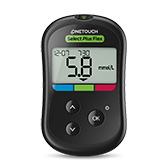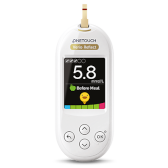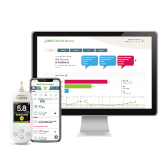9 Things to Remember When Starting Insulin Therapy

Type 2 diabetes is a condition that changes over time, so your diabetes treatment may also need to change to keep your blood glucose levels under control. This can include beginning insulin therapy.
Starting on insulin can be an anxious time. To help ease your worries, try to remember a few key points about what insulin therapy does and does not mean for you:
What starting on insulin does mean:
- Your healthcare team has decided this is the best way to help you manage your diabetes and they will work with you to ensure that you understand how using insulin fits into your diabetes management.
- You may have fears about using a needle but there are different methods of taking insulin including insulin pens, syringes and pumps. Your healthcare team can help you pick what works best for you and your lifestyle.
- You’ll need to learn something new and it may take some time. While you may have been living with diabetes for a while, there will be new things to learn when starting on insulin. This includes learning how to administer insulin, as well as how much and when.
- It may take some time to learn how to adjust your insulin dose based on your blood glucose levels. You may also need to test more regularly. In time and with your healthcare team, you’ll gain a better understanding of how meals and physical activity affect your blood glucose and how to modify your insulin to stay on target.
What starting on insulin does not mean:
- That you’ve failed or done anything wrong. Diabetes changes over time and so can your treatment needs.
- That you’re sicker or your diabetes has become worse.
- That your life will be more complicated in ways that you can’t manage. While there’ll be new things to learn, you’re used to managing your diabetes and working with your healthcare team will help to keep you well-equipped to take on this new challenge.
What are the benefits of insulin injections?
- It can help to decrease the symptoms and effects from high blood sugar levels (hyperglycemia).
- Insulin therapy may help to reduce your risk of diabetic complications caused by high blood sugar levels.
There are many benefits to starting on insulin therapy, and if you ever have any questions, reach out to your healthcare team. It’s important to keep an open dialogue with them and to talk to them about any concerns you have about starting insulin therapy, including how to properly administer it.
Resources:
Healthline. 10 Tips for Starting Insulin Therapy. https://www.healthline.com/health/type-2-diabetes/treating-with-insulin/starting-insulin-therapy#1. Accessed August 20, 2019.
Related articles
US-OTB-1900030 (21-121)

















